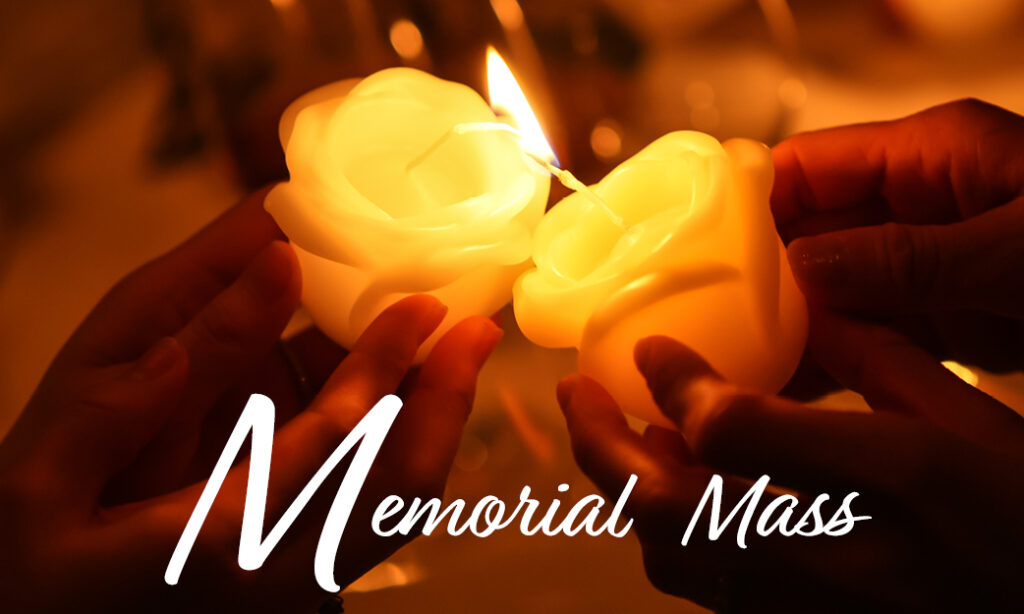First Reading: Joel 3:1-5; Psalm 130; GOSPEL John 11:17-43

The sun will be turned into darkness, and the moon into blood, before the Day comes, the great and terrible Day! My dear brothers and sisters, today we remember at this eucharist three Redemptorist brothers in religion who died together, in one single dreadful instant, on Christmas Day, just over four weeks ago: Bradben KAMUNDIYA, Edwin Dadiso CHIPANGURA, and Tariro Keith Thulani SAMUSODZA. On that sad day – Christmas Day – for the family and friends of these three young men, the sun – that light of our eyes and warmth of our hearts! – was indeed turned into darkness, and the moon – the beautiful moon! – turned into blood.
On that great and terrible day, for their parents and siblings, uncles and aunts and cousins, the world stopped turning and stood still. How could such a thing happen? To three such promising young men: Bradben, Edwin & Tariro? Happen so quickly, so unexpectedly, so utterly irreversibly! For their brother Redemptorists, and especially for their Master of Novices, part of the future is stillborn. For all of these, their parents and family, their friends – among whom are many here at Arrupe Jesuit University – and for the Redemptorists, we must pray today that they may find consolation both in their own faith and in the faith of their three young brothers. And for the souls of these men themselves, we pray earnestly to the Lord the Faithful One that he be faithful to his promises in their regard. As we know he shall.
Here’s the prophet Joel again: After this, I shall pour out my spirit on all humanity. Your sons and daughters shall prophesy, your old people shall dream dreams, and your young people see visions. These three young men – Bradben, Edwin and Tariro – did indeed see visions. They saw a vision of a life of service, of preaching and pastoral work as priests in the Redemptorist order. They arrived here at Arrupe Jesuit University to study philosophy in August 2018: Bradben in the BA Hons, Edwin in the PGD and MA, and Tariro in the PUG. And in May last year, 2021, all three of them – Bradben, Edwin and Tariro – graduated together in their various programmes, before beginning the Redemptorist novitiate. Their vision had begun to come true. And now, just six or seven months later, they are gone from the face of the earth, three bright young men – Bradben, Edwin and Tariro – snatched up abruptly from among from the living in a single second, or less, of sudden terror that was that horrific accident.
How could this have happened? Why? Why to these? These are questions that force themselves immediately upon our minds, especially so soon after the event and at a ceremony like this. But by now, we should also be able to see that there is another question, a prior question, that we should have before us even if we cannot answer it. It is not just about why this tragedy happened; it is more fundamentally about why there was – and even how there could be – such young men as Bradben, Edwin & Tariro as for it to happen to.
At the sight of her tears, and of those of the Jews who had come with her, Jesus was greatly distressed and, with a profound sigh, he said, “Where have you put him?” They said, “Come and see”. Jesus wept. The Gospel story here is very clear. This is not just a miracle, raising a man from the grave, an exhibition of great power, the power over life and death. It is more than that. When he heard of the death of his friend, Lazarus, Jesus had deliberately delayed his journey to the home of Lazarus, deliberately setting up an exhibition not so much of power, but of love. He wanted Martha and Mary and all their friends who came kubata maoko to see a great sign of the enormous, incredibly enormous, love of God for his people. At the sight of Mary’s tears, at the sight of the tomb that enclosed the body of his friend, Jesus wept. He wept. The Son of God, the Word Incarnate, wept at the death of his friend and the tears of his friend’s sister.
We too wept at news of the death of Bradben, Edwin and Tariro, and some of us at their graves. Was Jesus weeping with us? We know how great can be the love of a mother or a father for their son, the fruit of their very bodies, how great the grief when they see him lowered into the grave. How much greater than this must be the grief and love of God for his children? My brothers and sisters, we must never forget that the love of a God who creates all things, all living things, all of us, creates and sustains it all, moment by moment and purely out of love (out of love and nothing but love because God is love) – never forget that that love must be greater, infinitely greater than death. What is death? A mere nothing to a God of such creative love. Remember how St Paul taunted death: O Death, he mocked, where is your sting? Where is your victory?
These three young men, Bradben, Edwin and Tariro, are no longer with us but they are far from lost to the God who loved them so much. Like ourselves, they were not perfect; like ourselves they were sinners. But sin, too, like death, can have no victory over the love of God. To quote St Paul once again: After saying this, what can we add? If God is for us, who can be against us? Since he did not spare his own Son, but gave him up for the sake of all of us, then can we not expect that with him he will freely give us all his gifts? […] Can anything cut us off from the love of Christ – can hardships, or distress, or persecution, or lack of food and clothing, or threats of violence…? […] No; we come through all these things triumphantly victorious by the power of him who loved us. For I am certain of this: neither death nor life, nor angels, nor principalities, nothing already in existence and nothing still to come, nor any power, nor the heights nor the depths, nor any created thing whatever, will be able to come between us and the love of God, known to us in Christ Jesus our Lord. Amen.
By Rev. Fr. Stephen Buckland SJ.

Thank you. May the peace of Christ be with you.